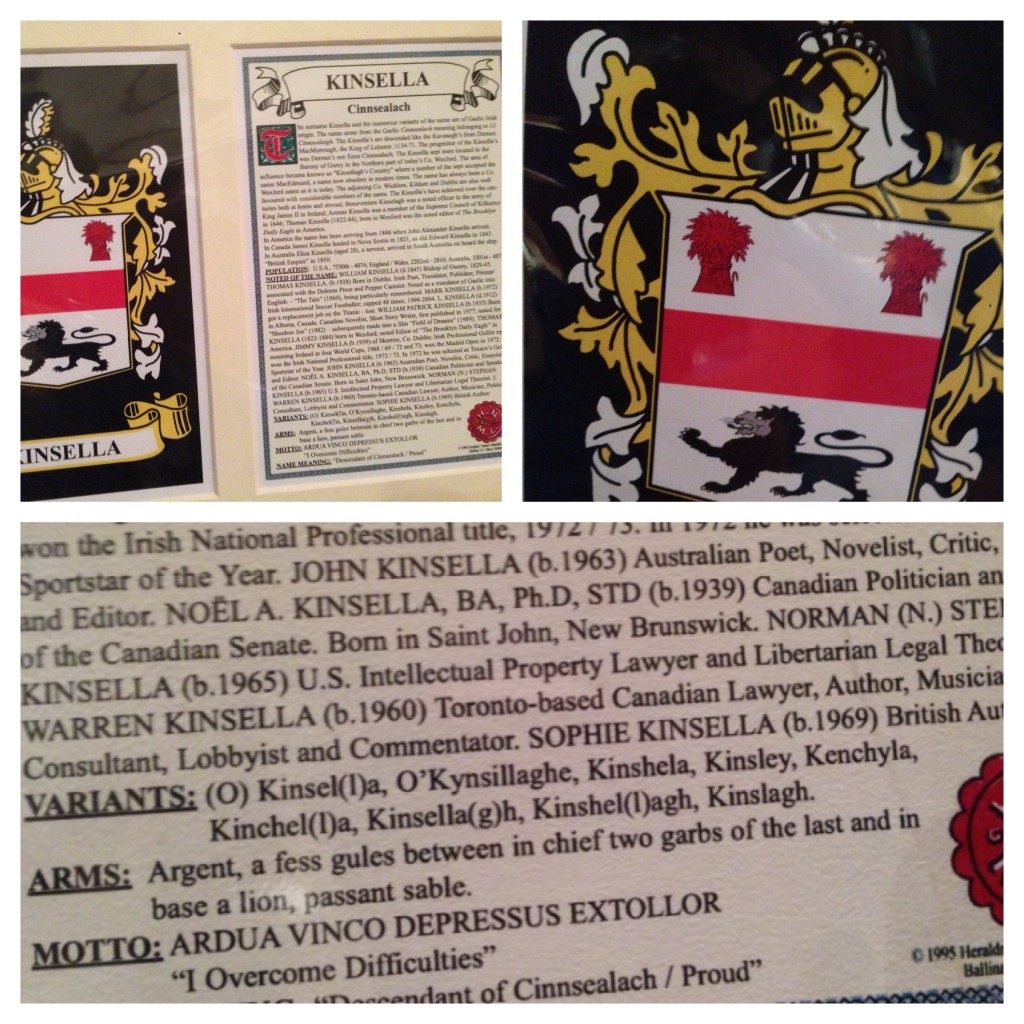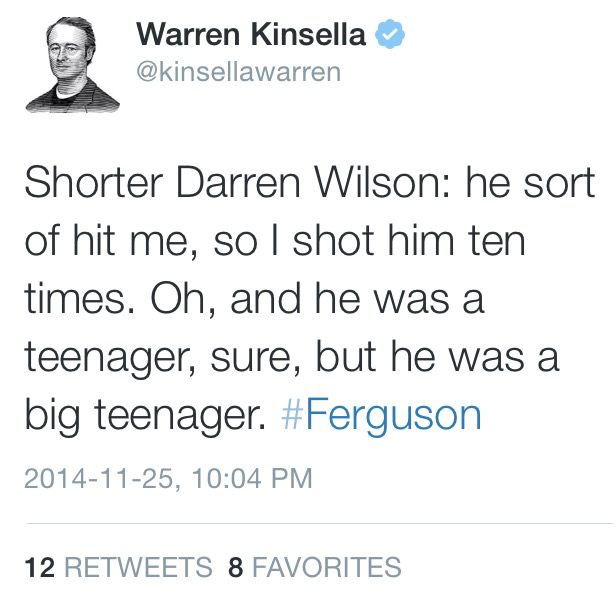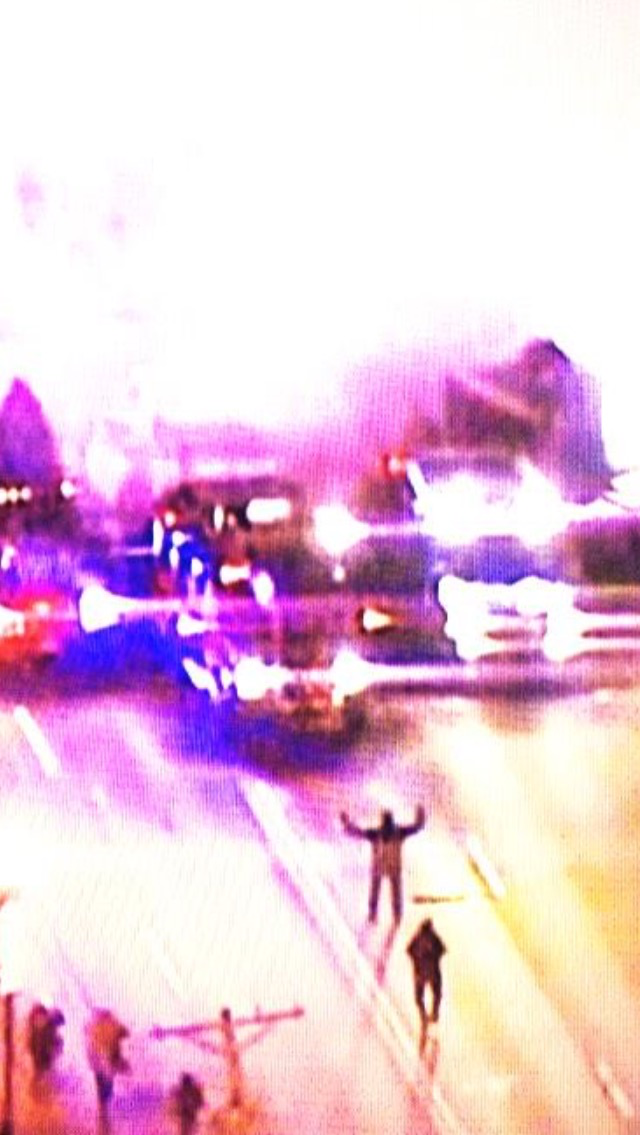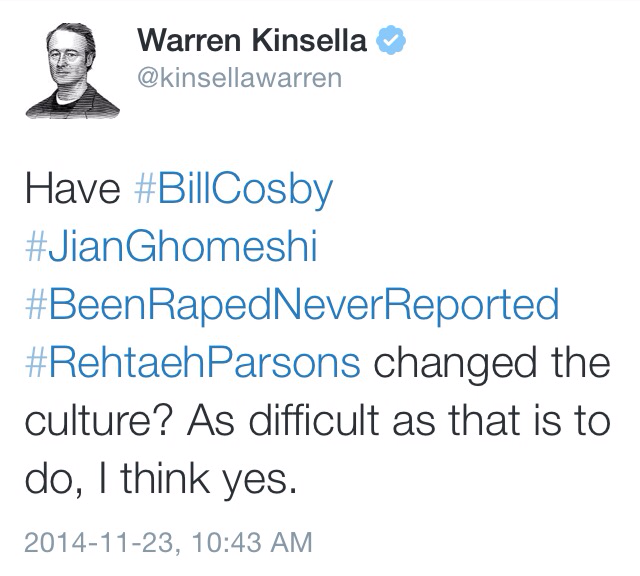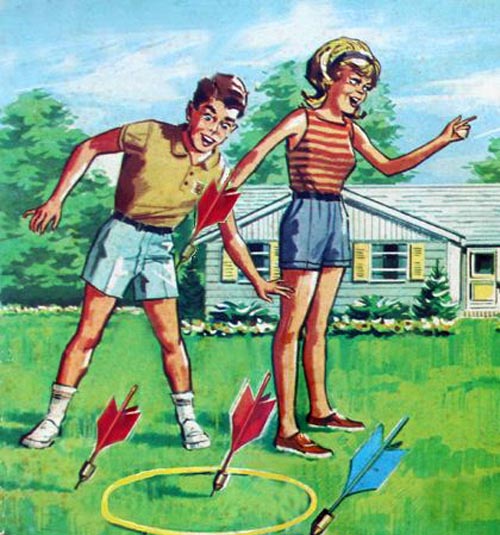It’s quaint, almost, the notion that other media are more important than television. Watching a CTV helicopter hover over King Street East in Toronto at lunchtime on Wednesday should have dispensed with it, once and for all.
The helicopter was there, clattering overhead like a antediluvian bird of prey, for most of the lunch hour. It was there, budgets be damned, to catch a glimpse of Jian Ghomeshi leaving court. That’s it. What did it cost CTV, to do that? As those on the ground gawked up at it, did anyone recall O.J. Simpson in that iconic white Ford Bronco SUV, helicopters trailing it down a Los Angeles freeway over twenty years ago?
Probably. The former CBC star was present to post bail, and listen to the charges against him. Accordingly, there was a literal army of media on hand to dutifully report on the little that was left to them, after a publication ban had been imposed: shorter haircut, glum expression, jacket no tie. No statements to the media.
And hovering overhead, throughout, like the unblinking eye of Dr. T.J. Eckleburg in The Great Gatsby, was TV. Above the print folk, the radio folk, the Internet folk, still more important than all of them put together: TV.
If it didn’t happen on TV, someone once said, it didn’t happen at all. The reappearance of Jian Ghomeshi – the former radio star, note – shows to be that indisputably true. TV still rules all.
There are reasons for this, some scientific, some not. Successive studies have shown citizens regard TV news as more in-depth, and more trustworthy, than newspapers. As someone who writes for newspapers – and loves newspapers and literally cannot imagine a world without them – this seems like insanity. But it’s still true.
Some will say, at this point, that the Internet is the new king. But they’re wrong. The Internet’s strength is its weakness: it has billions of pages, which is certainly proof that people have embraced it. But no one can keep track of something with billions of channels – and no one channel can ever dominate for long. So TV, with its finite number of choices, and its ubiquitousness, still rules.
You know where this is going, of course.
If television is King (and it is), and if nothing happens unless it happens on TV (and it doesn’t), then what are the implications for our politics?
Ask anyone who was is the House of Commons in 1977, when television cameras were bolted to the stately wooden walls in the Commons: they’ll tell you. Everything changed.
Does anyone really think that John Diefenbaker would have won as much as he did, if television cameras had been capturing his swinging jowls, his rheumy eyes, every single day? Does anyone believe that a man as decent and as thoughtful as Joe Clark would have had as short a tenure as Prime Minister, had TV cameras not been installed, two years before? Does anyone think – even for a commercial break – that Pierre Trudeau, Intellectual, was not keenly aware of the power of TV?
More particularly, does anyone actually believe that Trudeau’s eldest son didn’t learn about television’s impact on political fortunes? Does anyone think that his opponent’s relative positions in the polls aren’t tied, in some measureable way, to how they look on TV? You know, the bearded guy, and the guy with the cold eyes?
Television, the Internet notwithstanding, still rules all. And whoever has mastery over it – whoever understands it best – is usually the one to beat.
Therefore, Messrs. Harper and Mulcair, look way up: you may think yourself smarter than Justin Trudeau, or more substantial than him.
But do you really think, if the three of you were exiting a building one lunchtime, the helicopter with the TV crew would be following you, and not Trudeau?
Think again. TV killed the radio star, this week.
And it still has the power to kill the ambitions of the likes of you, too.
Comments (26)

